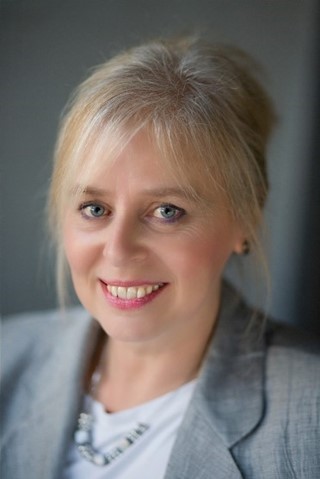The Woolmer lecture is dedicated to the contribution that Professor Ronald Woolmer made to the formation of a multidisciplinary approach to biomedical engineering.

Professor Wendy Tindale OBE will give the Woolmer lecture in October 2024
Professor Wendy Tindale is a Medical Physicist by background and is Scientific Director of Medical Imaging & Medical Physics at Sheffield Teaching Hospitals. She holds a Chair at the University of Sheffield and has a national role as Director of the National Institute for Health Research (NIHR) ‘Devices for Dignity’ HealthTech Research Centre (HRC) in Long-Term Conditions – a catalyst for development of innovative medical devices, healthcare technologies and technology-dependent interventions. Through this, she has combined clinical academic excellence with business opportunities through commercial translation of innovative medical technologies and has worked with both public and private sectors to facilitate successful collaborations. Focusing on the needs of the individual, through co-production, is at the heart of her collaborations. She now leads the national network of 14 NIHR HRCs across the country.
Wendy has contributed to multiple national and international committees, including Royal College Working Parties and Government advisory bodies. She is Chair of the SBRI Healthcare panel and has worked with NICE, MRC, EPSRC, Innovate UK and NIHR to advise on strategy, medtech funding and national adoption.
Within the NHS, she leads a large Clinical Directorate supporting broad scientific services and innovative practices spanning imaging, clinical engineering and medical physics disciplines.
Her lecture 'Multidisciplinary Collaboration in Technology Development & Evaluation - Opportunities, Challenges and Reflections ' will be
Reflecting on the theme of this year’s conference Beyond Boundaries: collaborating for tomorrow’s innovative solutions, this presentation will focus on the value and challenges of collaboration. It will use examples of technology developments and their evaluation and will cover the spectrum from concept development to clinical/system adoption. Opportunities and benefits arising from working across sectors and disciplines will be highlighted. Technology collaboration will be considered through a real-world lens, reflecting on facilitators and barriers and the components needed for success.
Ronald Woolmer
Ronald Woolmer did his clinical training at St Thomas’ Hospital, graduating in 1932. During the war he served in the RNVR, being demobilised as a Surgeon Commander.
In 1946 he was appointed Senior Lecturer in Anaesthetics at Bristol University, and in 1957 he became the first Director of the newly-created Research Department of Anaesthetics at the Royal College of Surgeons.
Ronald Woolmer was instrumental in convening a meeting at the Royal College of Surgeons, London, of colleagues interested in the many aspects of the evolving field of engineering applied to medicine. Approximately 40 people were present at this meeting, which was held shortly after Ronald Woolmer, and Alfred Nightingale (a medical physicist) attended the founding meeting of the International Federation of Medical Electronics in Paris during 1959. It was subsequently agreed that the group should hold regular meetings, and so the Biological Engineering Society (BES) was formed with Ronald Woolmer as the first President and Alfred Nightingale as Honorary Secretary. Unfortunately, Ronald Woolmer died about two years after the formation of the BES and it was subsequently agreed that a memorial lecture would be sponsored to recognise his tremendous foresight.
Past speakers:
| 2023 | Professor Sir Jonathan Van-Tam MBE: Communicating Science |
| 2018 | Professor Alison Noble: Human Image Recognition, Artificial Intelligence and Shifting Perceptions of Medical Ultrasound |
| 2017 | Professor Josef Kas: Why do rigid tumours contain soft cancer cells? |
| 2016 | Professor Andrew Taylor: Can Engineering and Imaging help us design Cardiovascular devices? |
| 2015 | Professor Anthony T Barker: Transcranial magnetic stimulation - the first 30 years |
| 2014 | Dr David Keating: Medical Physics: A Gateway to Innovation |
| 2013 |
Professor Molly Stevens:Designing Biomaterials for Ultrasensitive Biosensing and Regenerative Medicine |
| 2012 |
Professor Lionel Tarassenko: Physiology-Driven Signal Analysis and Data Fusion |
| 2011 | Prof Dr Willi A. Kalender: Developments in Computed Tomography: Is sub-mSv a realistic option?” |
|
2010 |
Professor Mark Tooley: Imitating the Patient |
|
2009 |
Professor Martin Birchall : Regenerative Medicine: new challenges, new hopes |
|
2008 |
Professor Clive Hahn: Bioengineering Aspects of the Lung: Models and Measurements |
|
2007 |
Professor Sir Michael Brady: Colorectal and Liver Cancer Image Analysis |
|
2006 |
Professor Dennis Noble : Cardiac Modelling |
|
2005 |
Dr H Gollee Centre for Rehabilitation Engineering, University of Glasgow : Assistive technologies for function restoration |